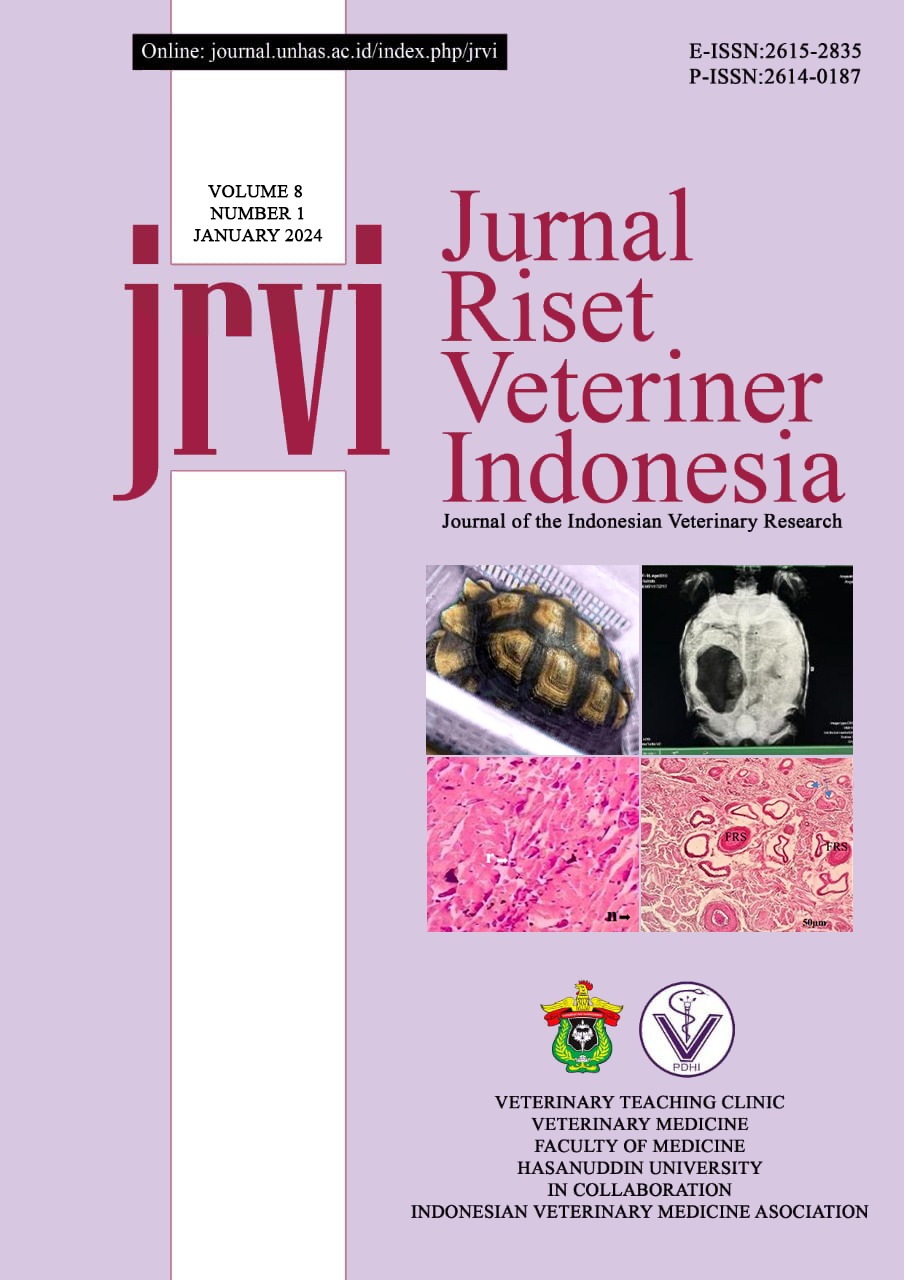Abstract
The objective of this study was to see whether addition bentonite to quail rations affected egg weight, shell weight, and shell thickness. For a period of three months, this study was carried out in the cage of Fapet Farm, Faculty of Animal Husbandry, Jambi University. The instruments and materials utilized in this investigation were quails aged 49 days, with up to 180 quails, and 20 units of quail cages measuring 60 x 45 x 45 cm each unit, with 9 quails in each unit. Bentonite, yellow corn, fish meal, bone meal, bran, CaCO3, soy meal, premix, lysine, methionine, and oil had been used as diet components. This study used a group randomized design (GRD) with 5 groups and 4 treatments. The treatments were P0 (0% bentonite), P1 (1% bentonite), P2 (2% bentonite), and P3 (3% bentonite). Feed consumption, drinking water intake, egg weight, shell weight, and thickness are among the variables that had been determined. The data collected was analyzed using ANOVA, and Duncan's Multiple Range Test was employed if the treatment had a statistically significant impact on the measured variables. The study found that utilizing bentonite up to 3% had no influence on feed consumption, water consumption, egg production, or egg weight or thickness. Conclusion: The addition of bentonite to quail diets had no effect on egg weight, shell weight, or shell thickness

This work is licensed under a Creative Commons Attribution-NonCommercial 4.0 International License.

